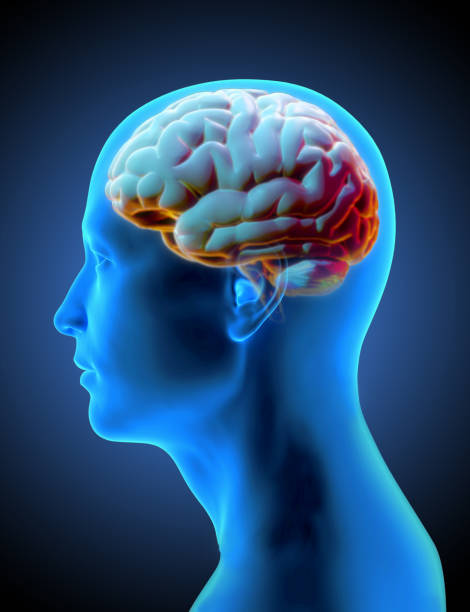In the quiet hours of the night, millions of glowing screens illuminate faces across the world. Fingers swipe, scroll, and tap, endlessly consuming images of smiling friends, exotic vacations, toned bodies, and curated moments of triumph. These endless feeds seem harmless—entertaining, even connecting. But beneath the surface lies a psychological undercurrent that shapes how we see ourselves, how we value our worth, and how we measure our lives against others.
This undercurrent is the phenomenon of social comparison, magnified to an unprecedented scale by social media. The platforms we use daily are not simply tools of communication; they are mirrors. But these are not ordinary mirrors. They reflect not our truest selves, but distorted images shaped by filters, editing, and selective sharing. And when we gaze into them too long, our sense of self can warp.
The story of social media and self-esteem is not merely about technology; it is about psychology, identity, and the deepest human need for belonging. To understand how our online lives affect us, we must journey into the science of self-esteem, the dynamics of comparison, and the subtle ways algorithms fuel our insecurities.
The Fragile Architecture of Self-Esteem
Self-esteem is not a luxury—it is the psychological foundation upon which much of our mental health rests. It represents how we perceive our own value, how worthy we feel of love, respect, and success. High self-esteem allows us to face challenges with resilience, while low self-esteem leaves us vulnerable to anxiety, depression, and despair.
Yet self-esteem is not fixed; it is fluid, shaped by our environment, relationships, and experiences. For centuries, human beings have measured themselves against those around them—neighbors, peers, colleagues. But never before in history have we been exposed to billions of lives at once, each carefully packaged to display its most enviable moments. Social media has transformed the village square into a global stage, and in doing so, it has amplified comparison to an almost unbearable degree.
The Psychology of Comparison
Psychologists have long known that humans are social creatures who define themselves in relation to others. In the 1950s, Leon Festinger introduced the “social comparison theory,” which suggests that people evaluate themselves by comparing with those around them. This can be constructive—if we compare ourselves with someone slightly more skilled, we may be motivated to improve. But it can also be destructive—if we constantly compare ourselves to those who seem impossibly successful, attractive, or popular, we may feel inadequate.
Social media magnifies this dynamic. Platforms like Instagram, TikTok, and Facebook present endless opportunities for what psychologists call “upward comparisons”—measuring ourselves against those who appear better off. Unlike real life, where we see the imperfections of others up close, social media offers only the highlight reels. The struggles, failures, and insecurities are cropped out, leaving behind a glossy illusion of perfection.
When we compare ourselves to these illusions, the inevitable result is dissatisfaction. It is like measuring our unfiltered lives against the airbrushed portraits of others. The scale is rigged, and our self-esteem bears the cost.
The Role of Algorithms in Shaping Perception
If comparison is the engine of self-esteem struggles, algorithms are the fuel. Social media platforms are designed to keep us engaged as long as possible. To achieve this, they feed us content that sparks emotion—whether envy, admiration, or outrage.
The algorithm does not simply show us what our friends post. It curates, amplifies, and personalizes. It learns what makes us pause, what makes us click, what makes our heart race. If we linger on images of glamorous lifestyles, it shows us more of the same. If we feel insecure about our body, it floods us with images of toned fitness influencers. Slowly, subtly, it creates an echo chamber of comparison, where the standard of success seems impossibly high.
This constant exposure reshapes our sense of normal. Vacations in luxury resorts, flawless skin, picture-perfect relationships—these no longer feel extraordinary; they feel expected. And as our expectations rise, our self-esteem falters, unable to keep up with the illusion.
The Emotional Cost of the Scroll
The impact of social media on self-esteem is not merely theoretical—it is deeply emotional. Studies have shown that prolonged use of platforms like Instagram correlates with higher levels of anxiety, depression, and body dissatisfaction, especially among adolescents and young adults.
The feelings that arise are not simple. They are layered, complex, often contradictory. A teenager may feel joy seeing a friend succeed, yet simultaneously feel envy and inadequacy. A young professional may feel inspired by a motivational post, yet crushed by the sense of falling behind. These emotional currents are exhausting, leaving users drained, restless, and never fully satisfied.
This phenomenon has been called the “compare-and-despair” cycle. The more we compare, the more inadequate we feel. The more inadequate we feel, the more we seek validation through likes and followers. And the more we seek validation, the deeper we fall into the very system that erodes our confidence.
The Illusion of Validation
One of the most insidious ways social media affects self-esteem is through external validation. In the past, our sense of worth was primarily shaped by close relationships—family, friends, colleagues. Today, it is shaped by digital applause: likes, comments, shares.
Each notification delivers a tiny hit of dopamine, the brain’s reward chemical. For a moment, we feel seen, valued, important. But the high is fleeting, and soon we crave more. This cycle of validation creates a fragile sense of self-esteem, one that depends not on inner confidence but on external approval.
When the likes stop, when the comments slow, when the algorithm buries our posts, we may feel invisible. And in that invisibility, self-doubt creeps in. The platform that promised connection leaves us feeling lonelier than ever.
The Impact on Body Image and Identity
Perhaps nowhere is the link between social media and self-esteem more visible than in body image. Platforms saturated with idealized images of beauty create unrealistic standards. Filters smooth skin, slim waistlines, brighten eyes. Influencers present bodies sculpted through hours of exercise, diet, or even surgery, yet frame them as effortless.
Young people, especially teenage girls, are particularly vulnerable. Studies show that exposure to such content increases body dissatisfaction, eating disorders, and unhealthy comparison. Boys, too, are affected, pressured to appear muscular, tall, and conventionally attractive.
But the effects go beyond appearance. Social media also shapes identity itself. It pressures users to craft an online persona, a brand, a version of self that may or may not align with reality. This split between the “real self” and the “online self” can lead to inner conflict, confusion, and a sense of inauthenticity. When self-esteem depends on maintaining an image rather than being oneself, authenticity suffers, and with it, psychological well-being.
The Social Divide: Who Is Most Affected?
Not everyone experiences the same impact from social media. Certain groups are more vulnerable than others. Adolescents, whose identities are still forming, are highly sensitive to comparison and validation. Women often face stronger pressure around beauty standards. Minority groups may encounter both representation and exclusion online, shaping self-esteem in complex ways.
Socioeconomic status also plays a role. For those with fewer resources, exposure to the glamorous lifestyles of the wealthy can deepen feelings of inadequacy. Even within friend groups, the pressure to keep up—to post equally exciting vacations, achievements, or milestones—can create stress and competition.
This divide shows that while social media is universal, its psychological effects are deeply personal, shaped by culture, age, gender, and context.
The Double-Edged Sword of Connection
It would be unfair to say that social media only harms self-esteem. For many, it offers connection, community, and belonging. Marginalized groups find support networks online. Artists share their creativity, activists spread awareness, and friends stay in touch across continents.
The problem is not connection itself but the way it is packaged. Social media connection is often performative rather than authentic, comparative rather than supportive. Instead of conversations, we get broadcasts. Instead of shared humanity, we get highlight reels.
The result is a paradox: we are more connected than ever, yet many feel more alone. Our self-esteem thrives not on shallow likes but on deep relationships. Without them, even the largest follower count can feel hollow.
Toward a Healthier Digital Self
If social media skews self-esteem, what can be done? The solution is not necessarily abandoning the platforms but transforming how we engage with them. Mindful use—setting limits, curating feeds, unfollowing accounts that trigger insecurity—can protect self-esteem.
Equally important is fostering media literacy, especially for young people. Recognizing that images are curated, filtered, and often staged helps defuse their power. Teaching the difference between online personas and reality can protect developing self-concepts.
On a broader scale, platforms themselves bear responsibility. Some have begun experimenting with hiding like counts, reducing visible metrics of comparison. But true change requires prioritizing well-being over engagement—a difficult balance in an industry driven by attention.
The Future of Comparison
As technology evolves, so too will the psychology of comparison. Virtual reality, augmented reality, and artificial intelligence may create even more immersive forms of digital self-presentation. The line between real and virtual selves will blur further, raising new questions about self-esteem and authenticity.
But one truth will remain: self-esteem thrives not on comparison, but on self-acceptance. The challenge of the future will be learning to use digital tools without letting them use us, to find connection without losing authenticity, and to nurture a sense of worth rooted not in the eyes of strangers but in the truth of who we are.
Conclusion: Reclaiming the Self
Social media is neither villain nor savior. It is a mirror—one that can distort or illuminate, harm or heal, depending on how we use it and how we see ourselves. The danger lies not in the technology itself, but in the comparisons it fuels, the illusions it sustains, and the fragile self-esteem it so easily disrupts.
To reclaim our sense of worth, we must step back from the endless scroll and remember that our value cannot be measured in likes or follows. We are more than curated images, more than filtered lives, more than the comparisons we make.
Science shows us the risks; psychology explains the mechanisms; but it is human choice that will shape the future. We can choose to use social media as a tool for connection rather than comparison, for authenticity rather than performance, for self-expression rather than self-doubt.
In the end, the most powerful “like” is the one we give ourselves—the quiet recognition that our worth is not defined by others, but by the truth of simply being human.






